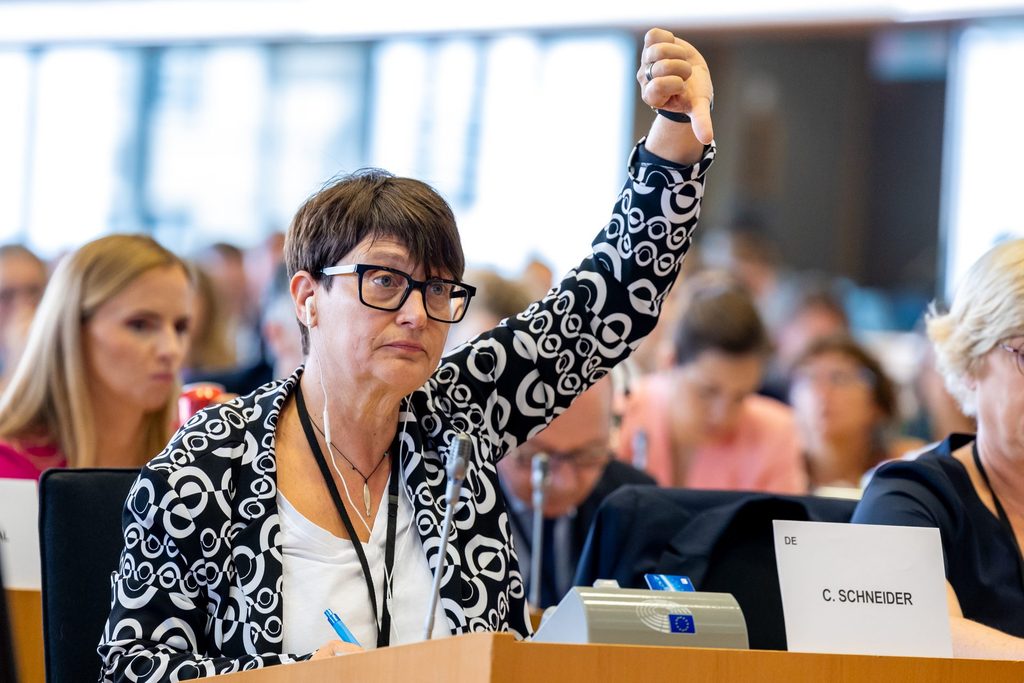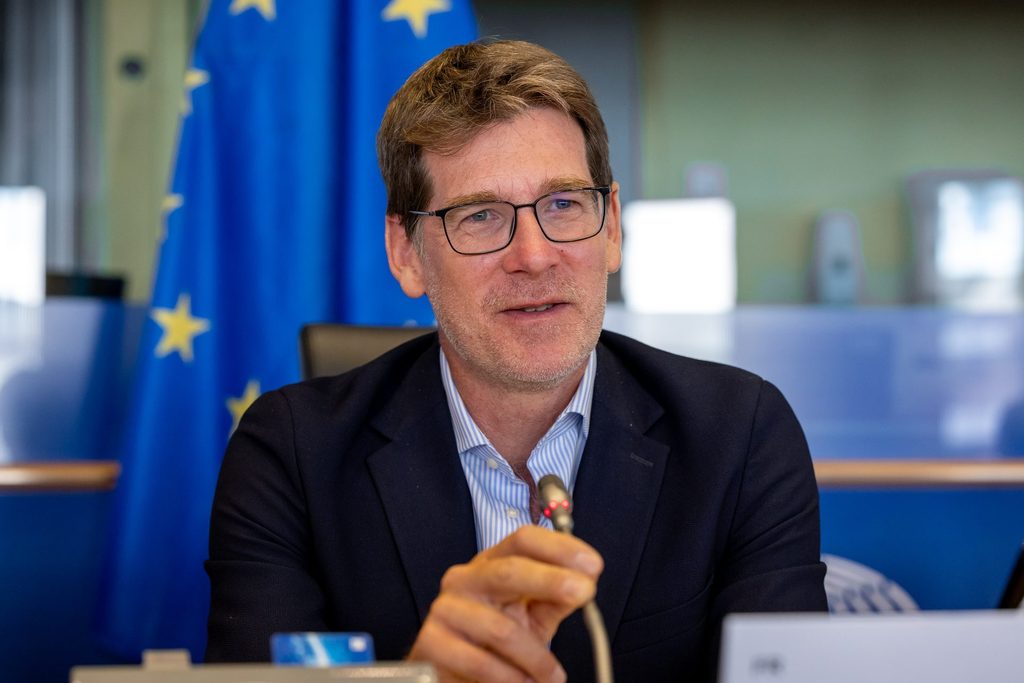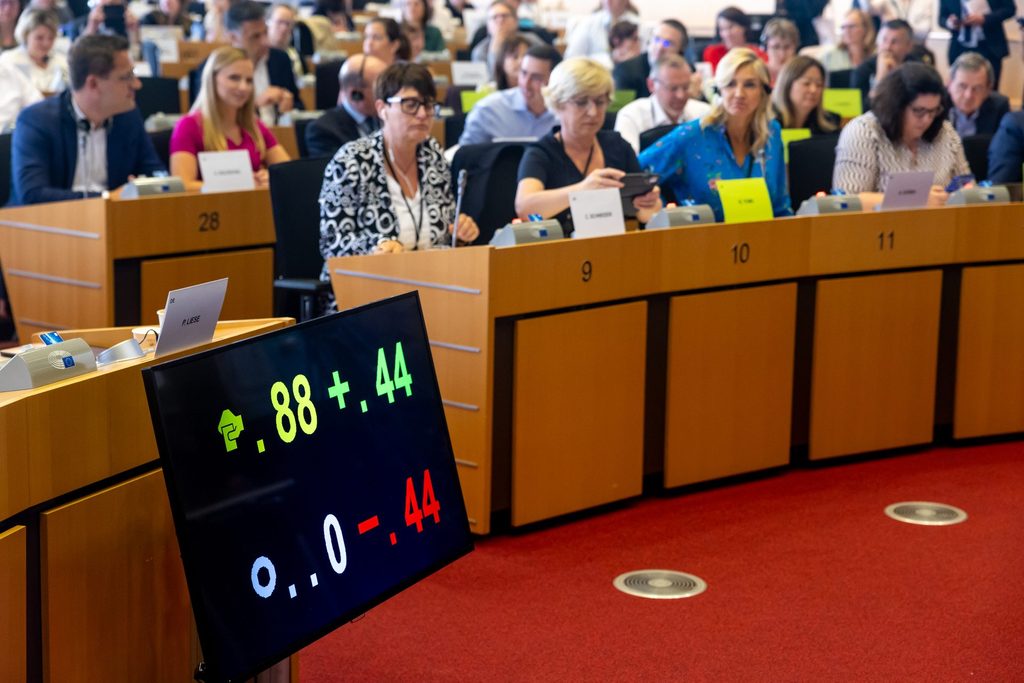Following weeks of deadlock, the environment committee of the European Parliament (ENVI) has once again voted down an amended version of the nature restoration law. Critics are calling efforts to block the legislation "Trumpism."
The biodiversity legislation has been at the forefront of political infighting within the EU and also Belgian politics, signalling a shift away from the EU's consensual approach to climate policy, and a move towards "culture war" politics.
After a lengthy vote, spread over two sessions and covering 2,500 amendment votes, the whole text was rejected due to a lack of majority with 44 votes in favour, 44 votes against and no abstentions.
The chair of the ENVI committee and supporter of the restoration law, Pascal Canfin (Renew - France), stated that he considers Tuesday's vote to have been muddled by political machinations from the right – and especially from Manfred Webber, the leader of the European People's Party (EPP).
"It was a very clear manipulation of the ENVI vote from Manfred Weber," Canfin said in a conference after the vote.

Christine Schneider (EPP - Germany) voting against the law. Credit: EPP
According to the committee chair, one-third of the EPP members of the environment committee had been substituted with members that oppose the proposal, particularly with members from Weber's own national party, the Christian Democratic Union of Germany (CDU).
Canfin has previously accused Weber of manipulation and blackmail of MEPs who support the law, while the EPP group alleges that the committee chair purposefully delayed the vote on the biodiversity legislation in an attempt to prevent rejection.
Next steps
The law will be sent to the plenary of the European Parliament, where a vote is expected in early July. The Parliament will be able to vote on whether to reject the bill and table new amendments. The co-legislating body, the Council of the EU, adopted a common position on nature restoration last week, which watered down many provisions of the law.
"What happens now? It is down to dialogue and negotiation," said MEP César Luena (S&D - Spain), the ENVI rapporteur on the file, in a press conference after the vote. The rapporteur also made a "solemn appeal" for the EU Commission President, Ursula von der Leyen to speak out on the law.
Von der Leyen is in a difficult position, as the nature restoration proposal was put forth by her own Commission, but is now being fought tooth and claw by her political family, the EPP.
The European Parliament's environment committee voted against sending its recommendations on the EU #NatureRestoration to the whole parliament, after right-wing MEPs gutted the proposal
The whole parliament must now back the original plan to #RestoreNature pic.twitter.com/vHpjdHlXsc — Greenpeace EU (@GreenpeaceEU) June 27, 2023
"I reach out my hand, especially to the EPP. We need to come up with a strategy, and so far their strategy was to compete with the far-right, but that never works," Luena added.
The MEP signalled a willingness to find common ground with the EPP even as he implied that they are spreading misinformation around it.
"A lot of lies have been said about this proposal," Luena said. "When you have a political dispute, you need to have facts to back up your arguments, not lies. This law will help guarantee food security, it would benefit farmers and fishers, and it will help people in those sectors."
'European Trumpism'
The nature restoration law sets legally binding targets for the recovery of Europe's damaged habitats and ecosystems. The European Commission estimates that about 80% of European habitats are in poor shape, which makes the continent more vulnerable to natural disasters and drives the dramatic loss of flora and fauna.
Tuesday's vote is the first time the environment committee struck down a bill from the EU's Green Deal agenda. In May, the fisheries and agriculture committees also rejected the proposal.

MEP Pascal Canfin at the press conference following the vote on 27 June 2023. Credit: EP Photo
According to the MEP and ENVI chair Pascal Canfin, the opposition to the law represents a new tide in European politics. "What we are seeing now is what I would call European Trumpism: anti-green, anti-migrant, anti-feminism."
Canfin still expresses optimism that the nature restoration law will pass in Parliament, saying that the full diversity of opinion inside will be better represented in the plenary session, rather than in the "manipulated" ENVI committee vote.
"The battle to save nature is not decided today, because the final say lies with the European Parliament," said the shadow rapporteur of the nature restoration law, Jutta Paulus MEP (Greens/EFA - Germany). "Unlike at the committee level, MEPs in plenary cannot be replaced by party soldiers loyal to the party line before the vote."

